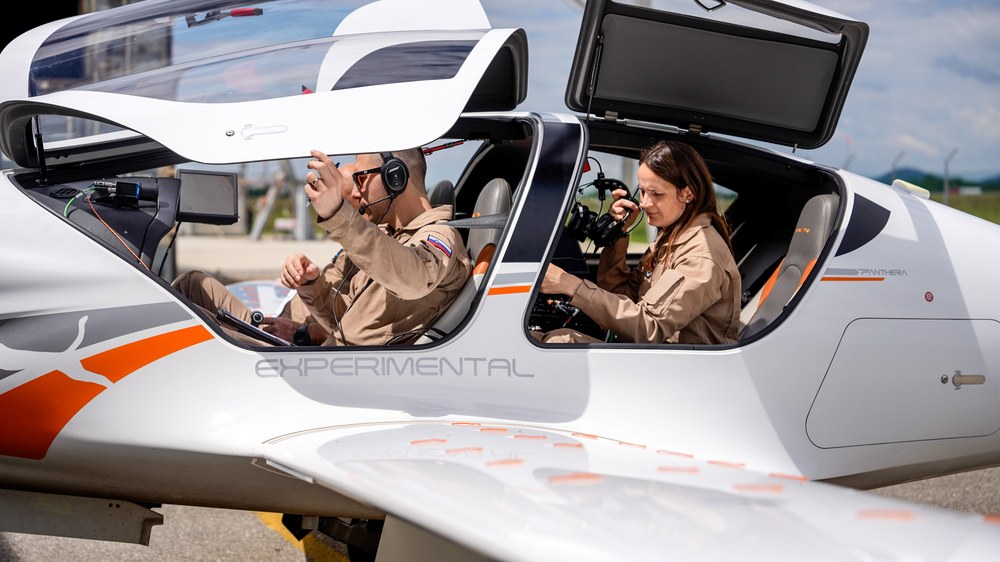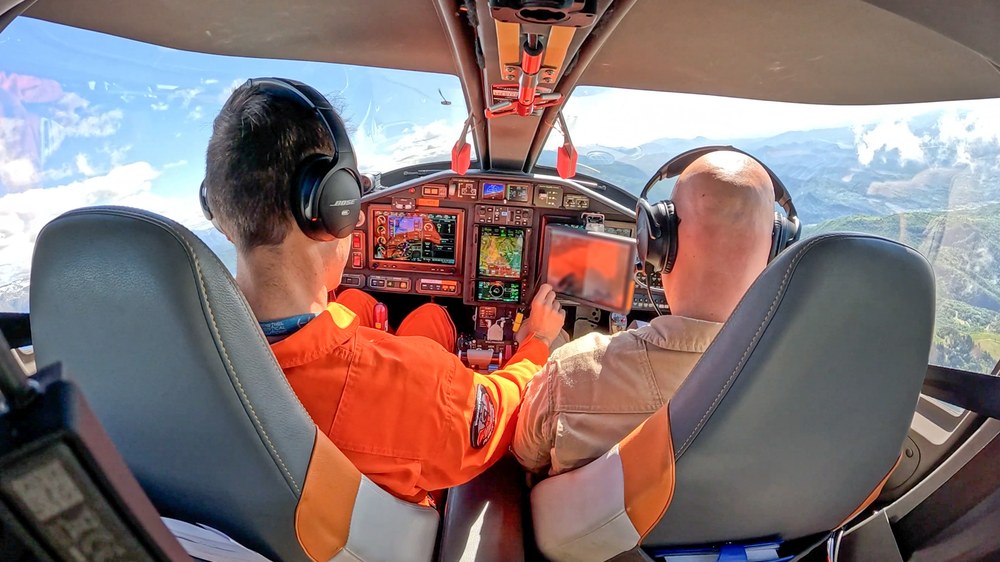Flight Trials with AI-Based Digital Co-Pilot Successfully Conducted

- First manned test flights of the AI-based digital co-pilot successfully completed in the DARWIN project.
- The system is intended to reduce the workload and enable safe and smooth collaboration between man and machine in the cockpit.
- The system was tested in simulated emergencies during several flights.
Project partners of the SESAR project DARWIN (Digital Assistants for Reducing Workload and Increasing collaboratioN) have successfully completed the first series of manned flight trials to validate the project's AI-based “Introductory Digital Co-Pilot.”. This automation system is designed to reduce the workload of pilots and enable safe and seamless human-machine collaboration, particularly in future reduced-crew or single-pilot operations.
The trials with simulated in-flight emergencies, conducted by Honeywell International s.r.o., the German Aerospace Center (DLR), Pipistrel and EUROCONTROL, aimed to test the developed DARWIN system under realistic conditions. Four flights with a four-seater light aircraft from Pipistrel involving four test pilots were carried out in May 2025, near Gorizia Airport in northeastern Italy.
Supporting the pilot in abnormal and high-stress situations
The system was evaluated across a range of representative nominal and emergency scenarios, designed to assess its operational robustness and user-friendly interface. The DARWIN team utilized a Pipistrel Panthera aircraft to test the developed digital co-pilot during the trials. The tests started with standard flight patterns.

Then, the pilots enacted multiple emergency scenarios in which either they or a passenger experienced health issues during the flight. The simulated emergencies included pilot drowsiness, with the system offering multiple levels of alerts and adaptive task delegation from the human to the machine, and pilot incapacitation, which triggered emergency autoland procedures. Also simulated were simple and severe medical issues of a passenger, with the system detecting and relieving the pilot of tasks like suggesting a diversion or contacting air traffic control.
About DARWIN
The DARWIN consortium is developing AI-powered digital assistants and Human-AI collaboration frameworks to support future, more automated operations, ensuring equal or greater safety levels and equal or reduced crew workload compared to today’s full-crew operations.
This project has received funding from the SESAR 3 Joint Undertaking (JU) under grant agreement No 101114733. The JU receives support from the European Union’s Horizon Europe research and innovation programme and the SESAR 3 JU members other than the Union.

SESAR 3 JU / EU
